News
26.02.2026.
Visit to the pilot area of Plitvice Lakes National Park
Yesterday, on 25th of February, the project manager and project partners of the PACT-VIRA project visited the pilot area of Plitvice Lakes National Park. During the visit, the results of the project’s first year were presented to the Park’s staff, along with the planned activities for the current year. A field visit to key locations was also conducted, and the first interviews with representatives of the local community were carried out, representing one of the activities planned for this year.
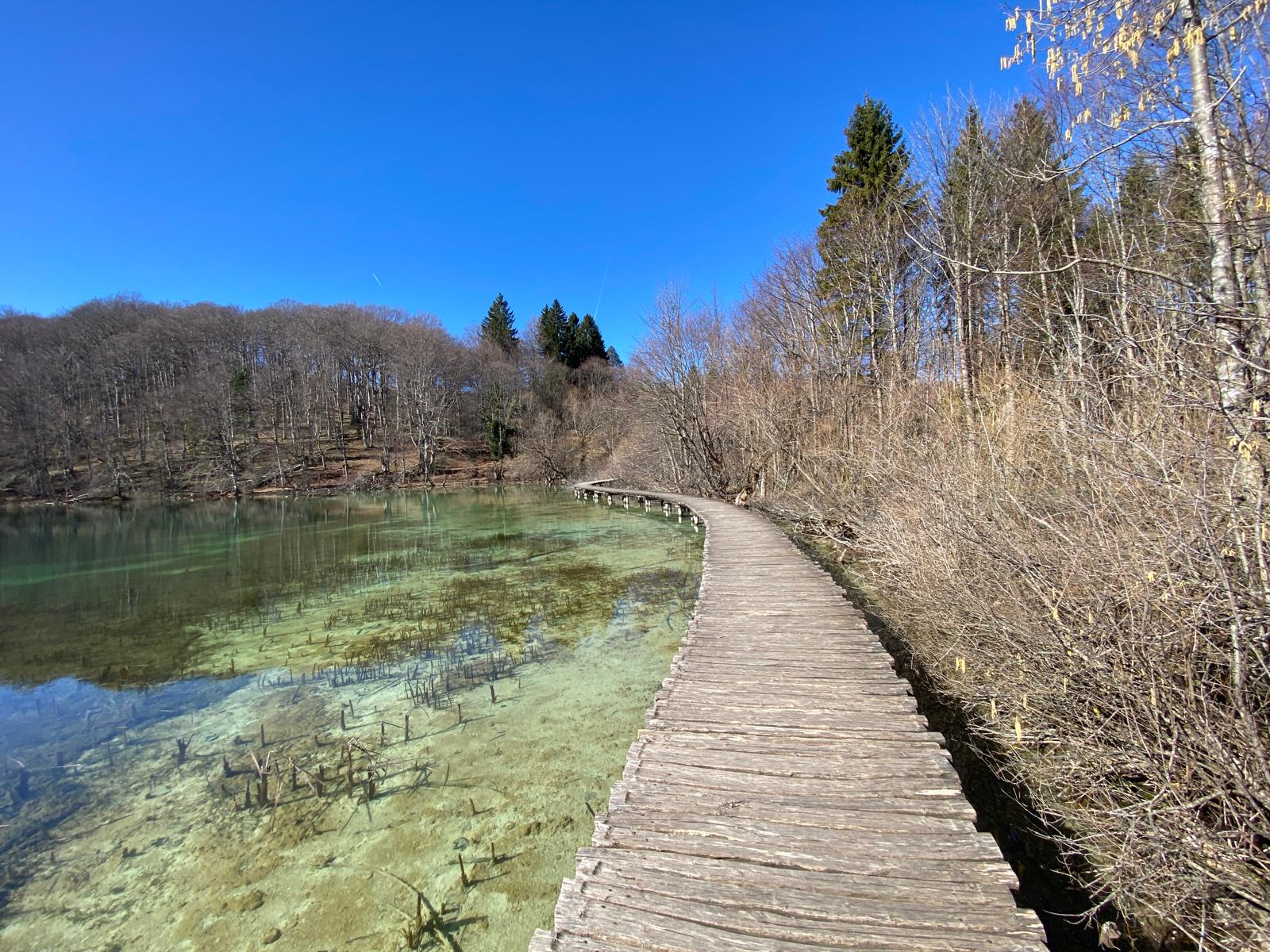
.jpeg)
11.02.2026.
In the journal Geographies (2026, 6(1), 17), a scientific paper titled “Climate Study Insights for the Tourism Sector: Analysis of Selected Pilot Regions in Croatia” was published, authored by Dr. Mira Zovko and Dr. Izidora Marković Vukadin (Institute for Tourism), as well as Dr. Krešo Pandžić and Dr. Tanja Likso (Croatian Meteorological and Hydrological Service). The paper provides a comprehensive analysis of long-term climate trends and their implications for tourism in Croatia, with a particular focus on five representative climatic regions: Lika, Kvarner, the Zadar region, and northern continental Croatia (Varaždin and Međimurje Counties). The analysis covers the period from 1961 to 2024, examining trends in mean annual air temperature, precipitation, and drought indicators (sc-PDSI and SPI).
Results indicate a continuous increase in mean annual air temperature and changes in precipitation patterns. To contextualize climate data for the tourism sector, semi-structured interviews were also conducted with tourism experts in the observed regions. Using a mixed-methods approach allowed for comparison between objective climatological indicators and the subjective perceptions of practitioners. Interviewees highlighted changes in the seasonality of tourism demand, growing concerns about heatwaves and water availability, and the need to adapt business and development models. The paper presents a methodological framework for developing climate change adaptation recommendations in tourism, taking regional specificities into account.
The paper is available at: https://www.mdpi.com/2673-7086/6/1/17
The research was conducted within the PACT-VIRA (IP-2024-05-9190) and COMMITMENT (Cro-Ris ID-95749) projects.
Published Scientific Paper on Climate Change, Nature-Based Tourism, and Population Aging
A scientific paper titled “Climate Change, Nature-Based Tourism, and Aging: Assessing Vulnerability and Resilience in Urban and Natural Protected Areas—Semi-Systematic Review” has been published in the scientific journal Urban Science (Q1, Q2, IF 3.2) as part of the special issue City and Ageing: A Challenge for Urban Planning. The authors of the paper are Izidora Marković Vukadin, Mira Zovko, Ante Mandić, and Damjan Zovko.
The paper presents a semi-systematic review of 94 scientific studies published between 2010 and 2025, analyzing how the literature conceptualizes vulnerability and resilience in nature-based tourism within urban protected areas and natural protected areas, with a particular focus on climate change and population aging.
The results indicate a pronounced geographical bias toward the Global North, a dominant research focus on natural protected areas, and a relatively limited representation of topics related to the health, well-being, and needs of older adults. The authors emphasize the need for integrated and inclusive approaches that link urban innovations, ecosystem restoration, participatory governance, and the principles of regenerative tourism.
The paper was published as part of the PACT-VIRA scientific project, funded by the Croatian Science Foundation (HRZZ).
It is available at: https://doi.org/10.3390/urbansci9120543
Published Scientific Paper within the HRZZ Project PACT-Vira
As part of the scientific project PACT-Vira, funded by the Croatian Science Foundation, a new paper has been published titled “Delineation Using Multi-Tracer Tests and Hydrochemical Investigation of the Matica River Catchment at Plitvice Lakes, Croatia.” The paper was published on 14 November 2025 in the renowned journal Water (MDPI), Volume 17, Issue 22, on pages 3261.
The authors of the paper are Tihomir Frangen, Ivana Boljat, Hrvoje Meaški, and Josip Terzić.
The research provides important new insights into the hydrogeological boundaries of the Matica River catchment, a key area for the water regime of Plitvice Lakes National Park. Although several hydrogeological catchments can be distinguished within the Park, their boundaries have not been clearly defined until now. The particular importance of the Matica catchment arises from its vulnerability to expected pressures caused by expanding agricultural and tourism activities.
During two field campaigns (March 2023 and April 2025), multiple groundwater tracer tests using fluorescent dyes were conducted, accompanied by a detailed hydrochemical analysis of spring waters. The results offer valuable data contributing to a better understanding of water dynamics and represent an important scientific basis for the sustainable management of this highly sensitive area, especially in the context of increasingly pronounced climate extremes such as floods and droughts.
The paper is available on the Water journal website: https://www.mdpi.com/2073-4441/17/22/3261
A new meteorological station has been installed in Kopački Rit as part of the PACT-VIRA project
Researchers from the HRZZ PACT-VIRA project installed a new meteorological station yesterday in the Kopački Rit Nature Park, which will enable continuous monitoring of meteorological parameters on-site. The station measures air temperature, precipitation, wind direction and speed, humidity, and other important indicators, and is located near the Sakadaš tourist pier.
Anyone interested can monitor current weather conditions in real time through the Pinova Mobile app. After installation, select "Log in" and enter the username itztg and password 903147.
This equipment will significantly contribute to a better understanding of the climatic conditions in Kopački Rit, as well as to the implementation of scientific activities within the PACT-VIRA project.
.JPG)
.JPG)
Hydrogeological Research of the Croatian Geological Survey in Kopački Rit
Over the past few weeks, researchers from the Croatian Geological Survey have carried out a series of hydrogeological investigations in the Kopački Rit area as part of the PACT-VIRA project. The activities included various detailed hydrogeological measurements aimed at improving the understanding of the hydrological processes that shape this unique wetland area.
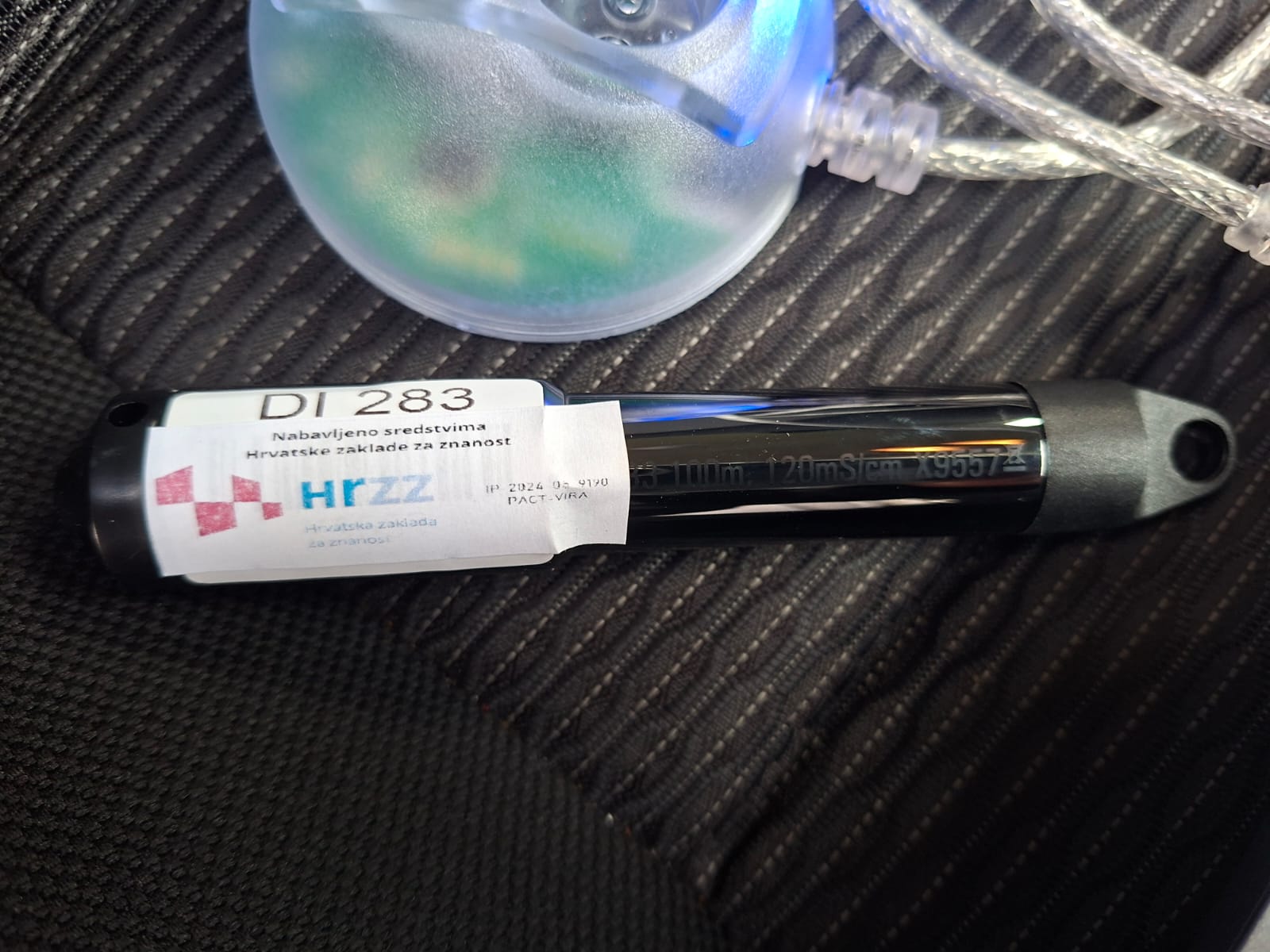
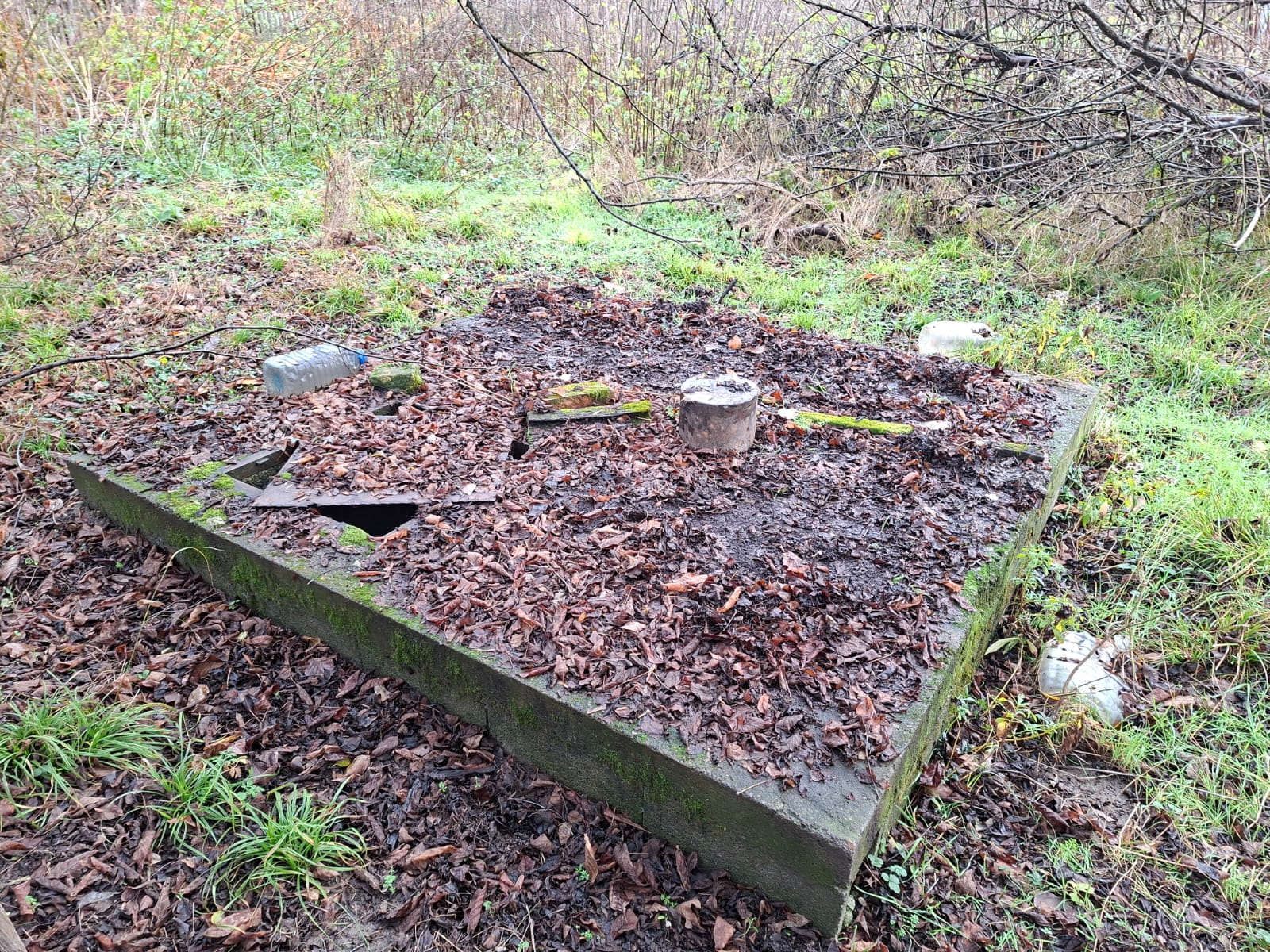
Fieldwork on the Island of Vis
Project collaborators from the Institute for Tourism, Filip Ložek and Leona Matotek, conducted fieldwork on the island of Vis from 21 to 23 October 2025. During the visit, they carried out interviews with key stakeholders, including the mayors of the towns of Vis and Komiža and the director of the Vis Tourist Board.
They also held a meeting with the director of the Vis Archipelago Geopark and visited the island’s geotrails and other relevant sites to collect data essential for the research.
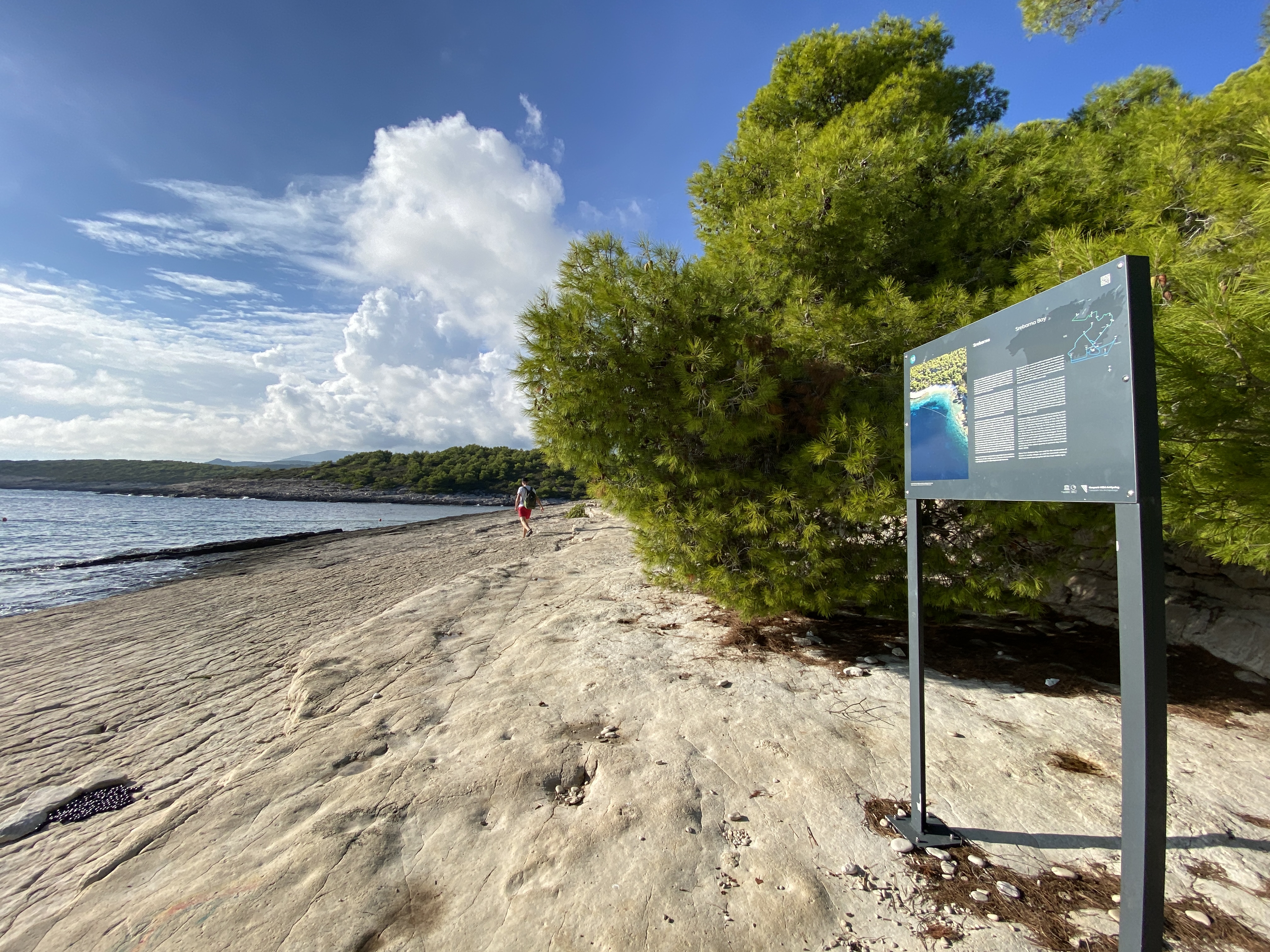
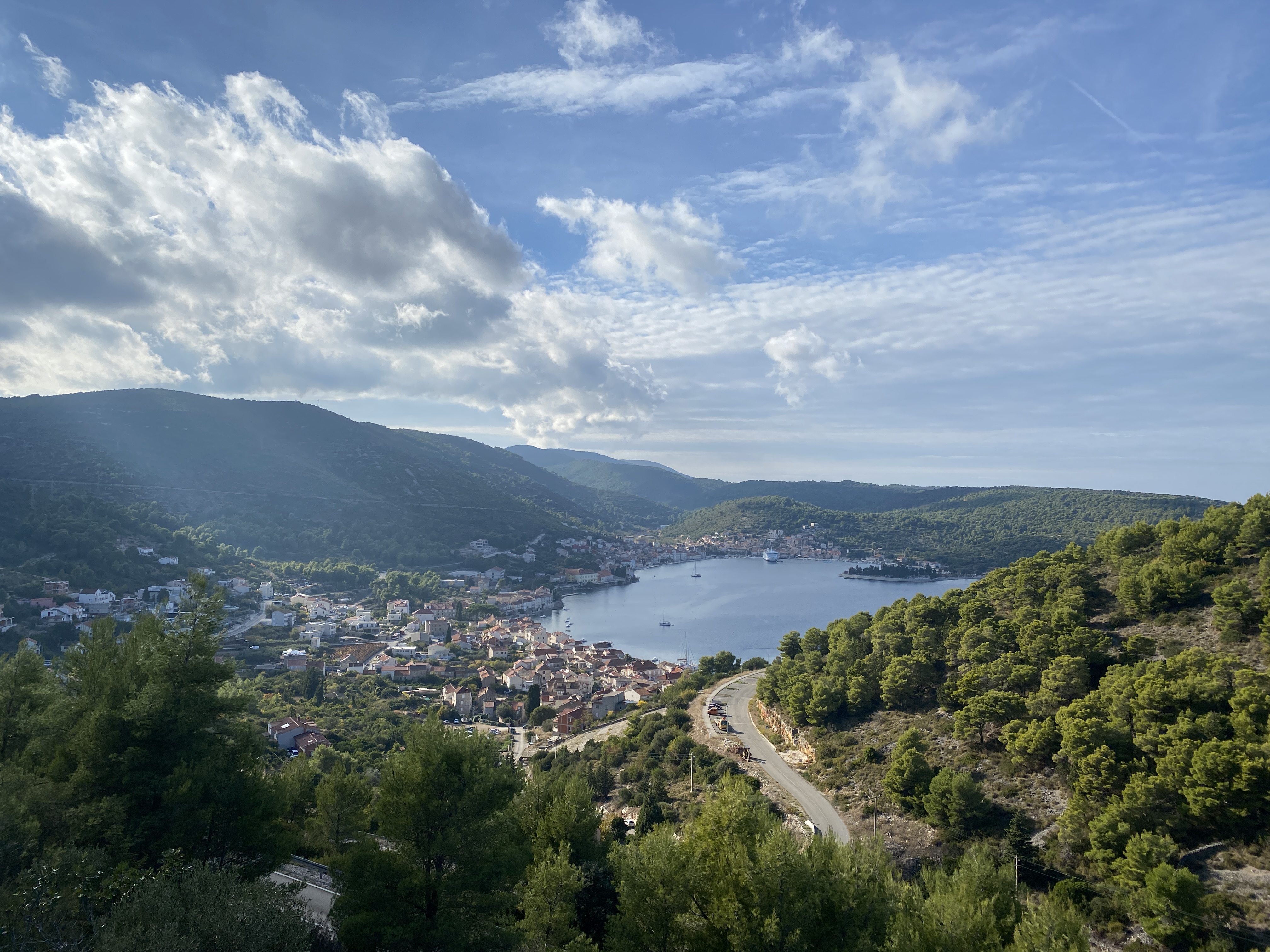
Scientists from the Institute for Tourism participated in the 14th International Symposium “Kopački rit Yesterday, Today, Tomorrow 2025”, held at the Faculty of Agrobiotechnical Sciences in Osijek on September 25–26, 2025. This scientific event traditionally brings together researchers, experts, and stakeholders from various sectors with the aim of promoting an interdisciplinary approach to nature conservation, sustainable development, and the protection of natural and cultural heritage.
As part of the Croatian Science Foundation (HRZZ) project PACT-VIRA, three scientific papers were presented, fully or partly prepared within the scope of the project and co-authored with colleagues from other scientific institutions:
- Hydrogeological investigations for the sustainable water management plan of the Baranja region – authors: Marko Copić, Marco Pola, Igor Karlović, Matko Patekar, Staša Borović, Branko Kordić, Filip Ložek, Izidora Marković Vukadin, Kosta Urumović
- Integrating diverse scientific approaches for climate-resilient tourism management in protected areas – authors: Izidora Marković Vukadin, Filip Ložek, Damir Krešić, Luka Valožić, Staša Borović, Marco Pola, Josip Terzić, Kosta Urumović, Lidija Srnec, Tanja Lisko, Ivana Havrle Kozarić, Aljoša Duplić, Tamara Kirin, Karla Fabrio Čubrić
- Comparative functional responses of native Sunbleak (Leucaspius delineatus) and invasive Topmouth Gudgeon (Pseudorasbora parva) on Carp fry: Implications for predatory strength and biocontrol potential – authors: Filip Ložek, Natalia Szydlowska, Marek Šmejkal, Jakub Adame, Lukáš Veselý, Izidora Marković-Vukadin, Miloš Buřič
This participation reaffirms the importance of interdisciplinary research in promoting sustainable development and preserving natural and cultural heritage in Croatia and beyond.
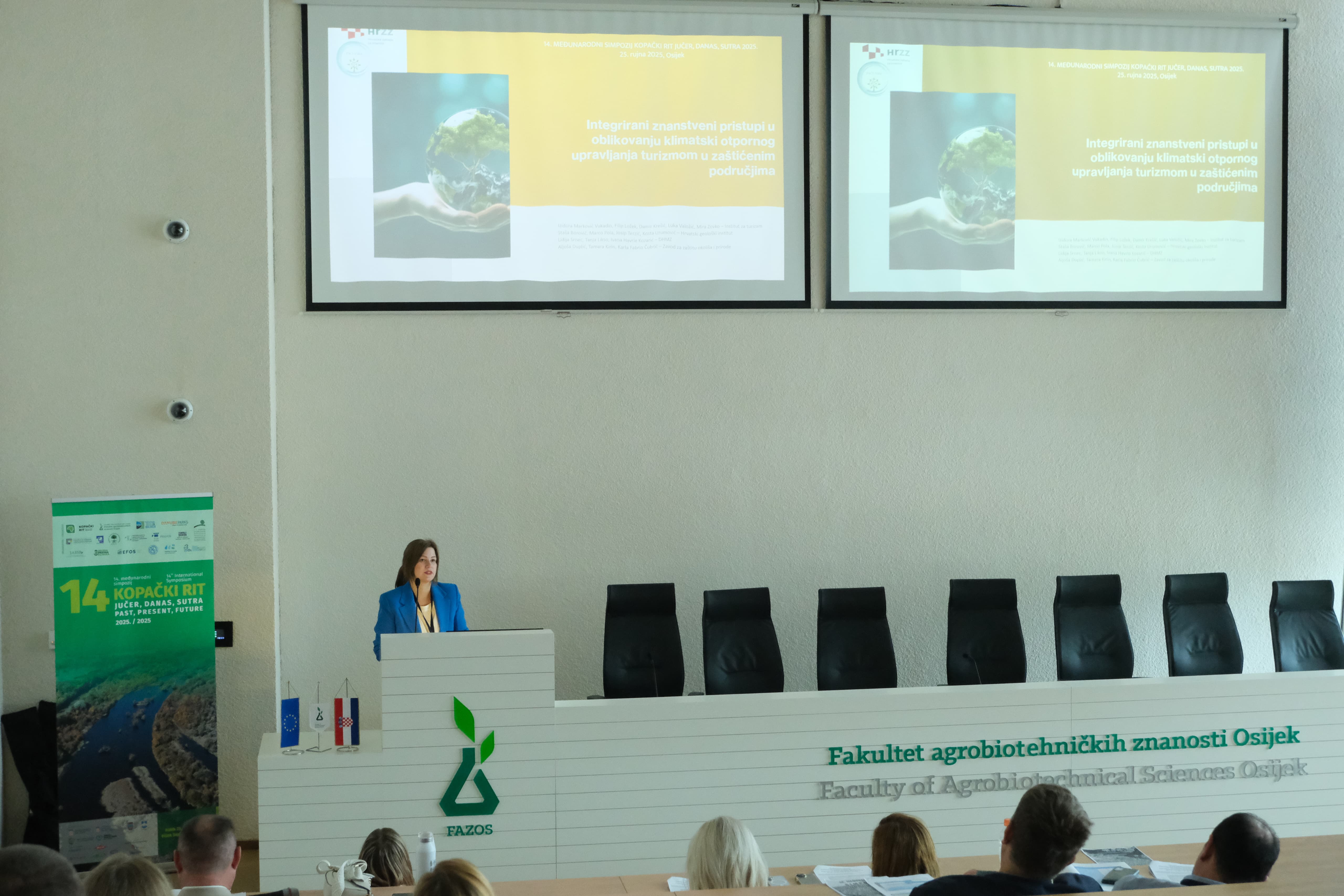
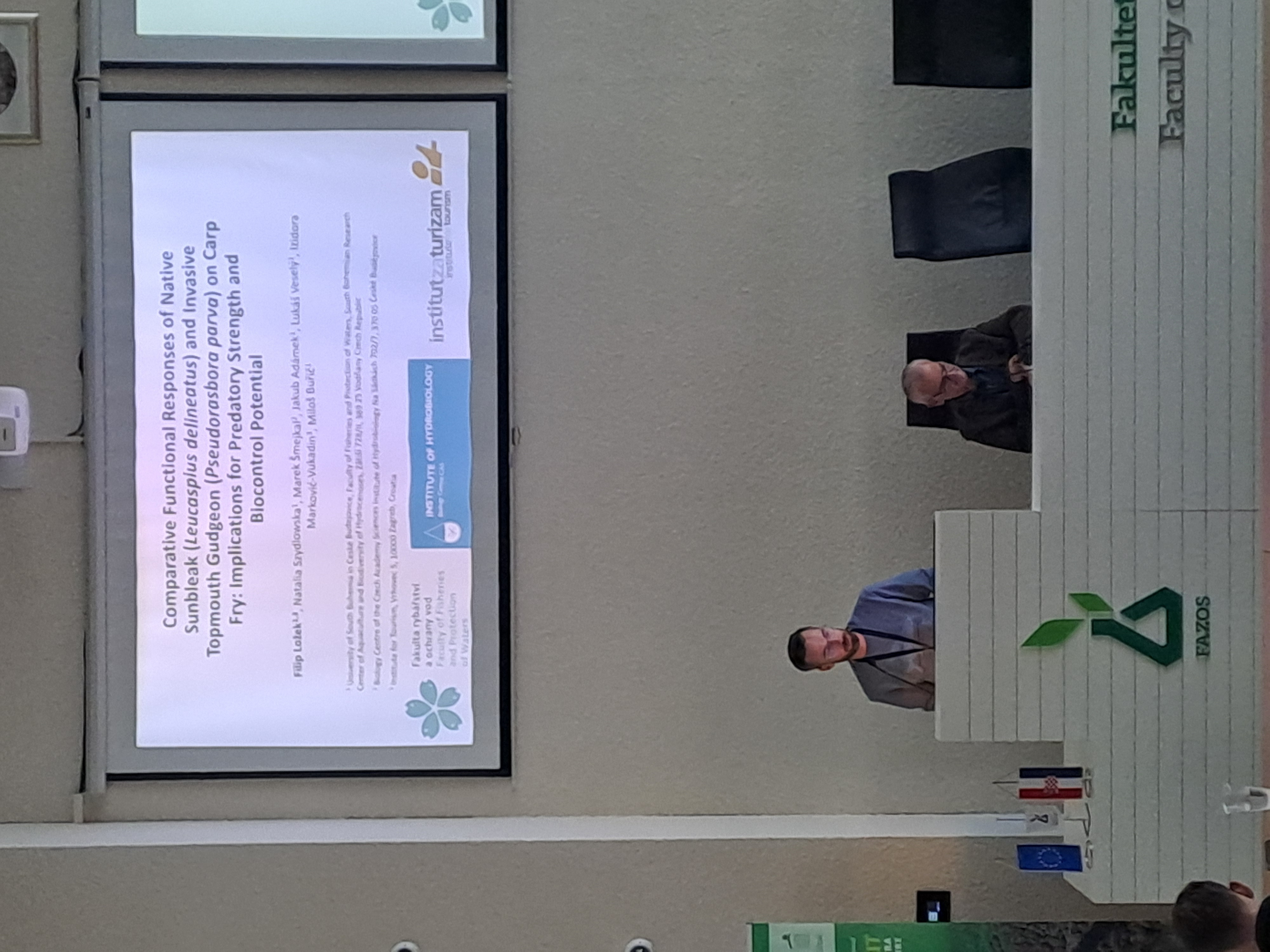
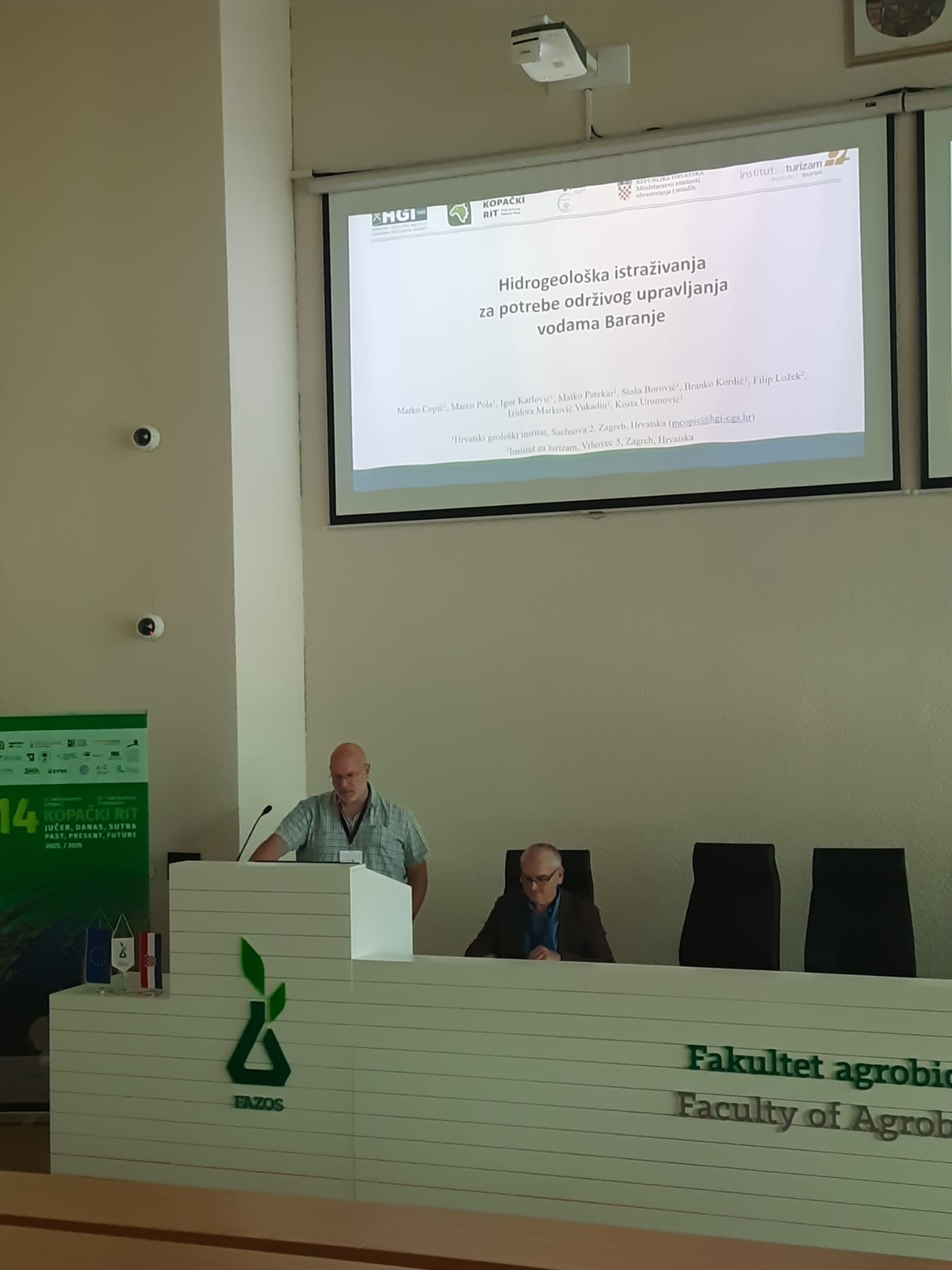
.jpg)
PACT-VIRA Project Team Meeting Held
On September 24, 2025, a meeting of the PACT-VIRA project team was held. During the meeting, the results achieved so far were presented, and the next steps in the project’s implementation were discussed and defined.
The meeting served as an opportunity to exchange experiences, evaluate progress, and align upcoming activities with the aim of successfully achieving the project objectives.
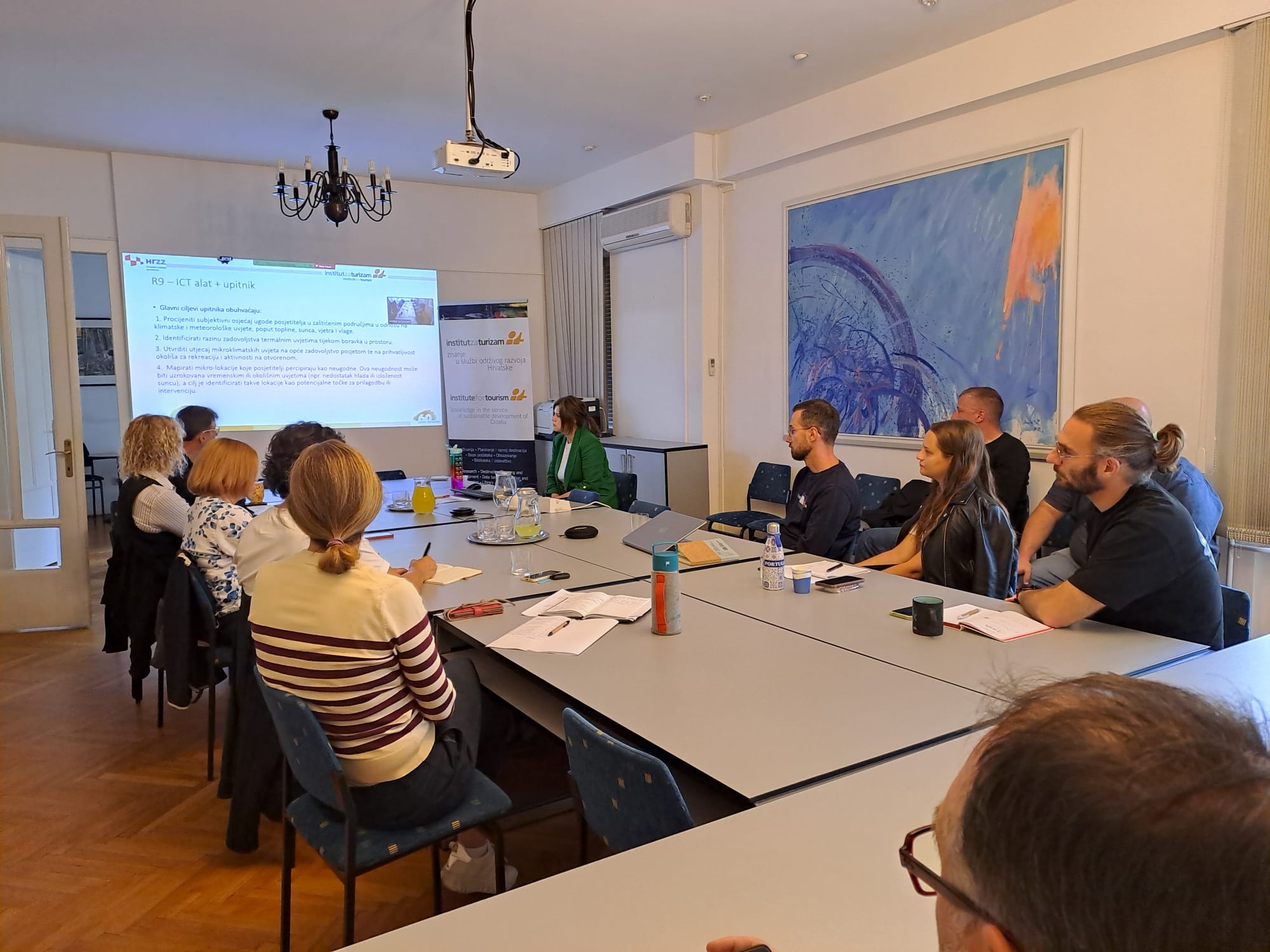
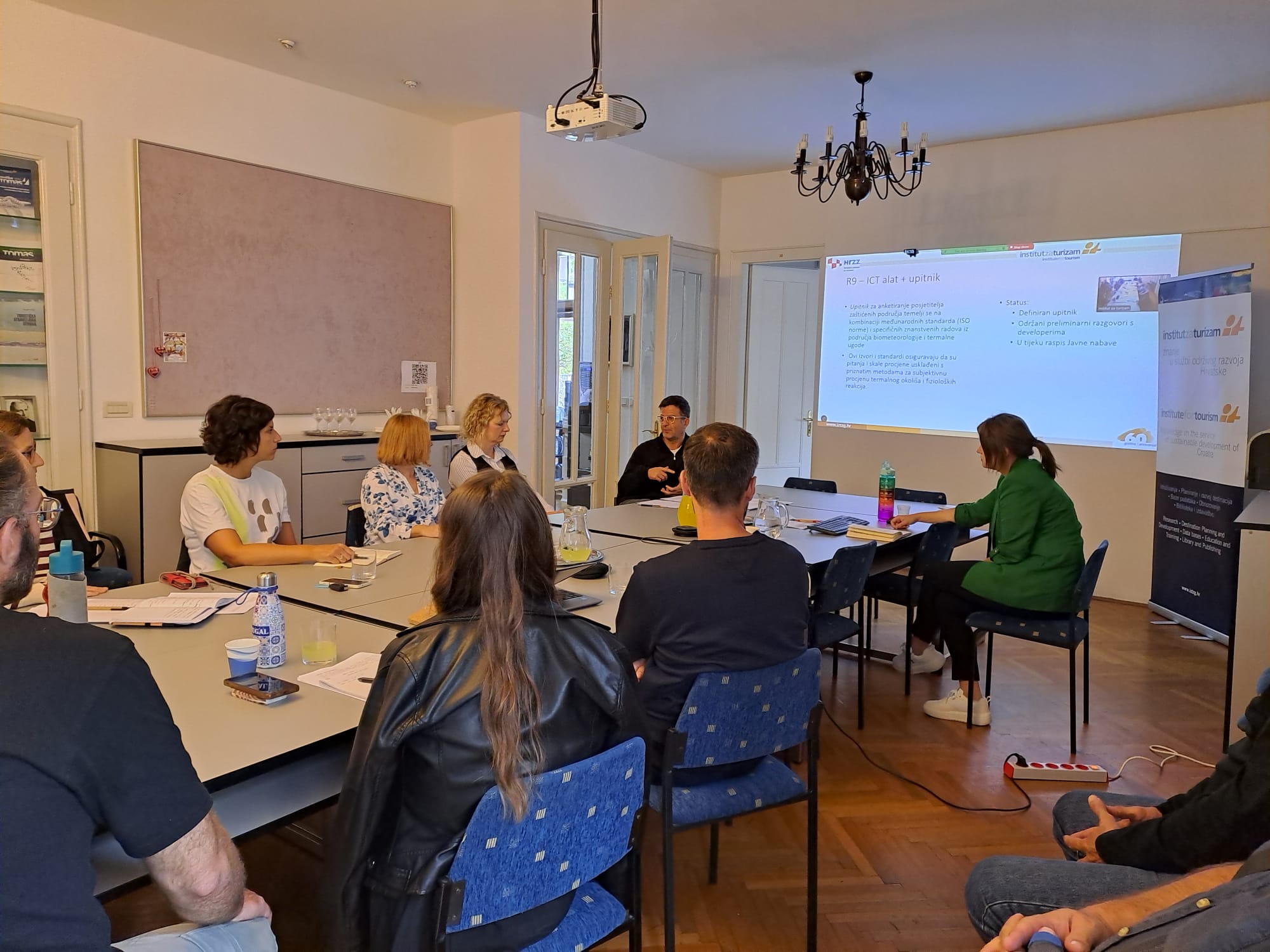
Research Team in the Field at Plitvice Lakes National Park
The research team of the project conducted fieldwork at Plitvice Lakes National Park from September 16 to 18, 2025. During the visit, interviews were carried out with staff from Plitvice Lakes NP, Baraćeve Caves NP, as well as representatives of the park’s and surrounding areas’ tourist boards.
In addition to interviews, the researchers conducted site visits and field observations, aiming to collect data on tourism practices, visitor management, and the challenges of climate change in the protected area.
These findings will contribute to a better understanding of sustainable tourism development and climate resilience in Plitvice Lakes and the wider region.
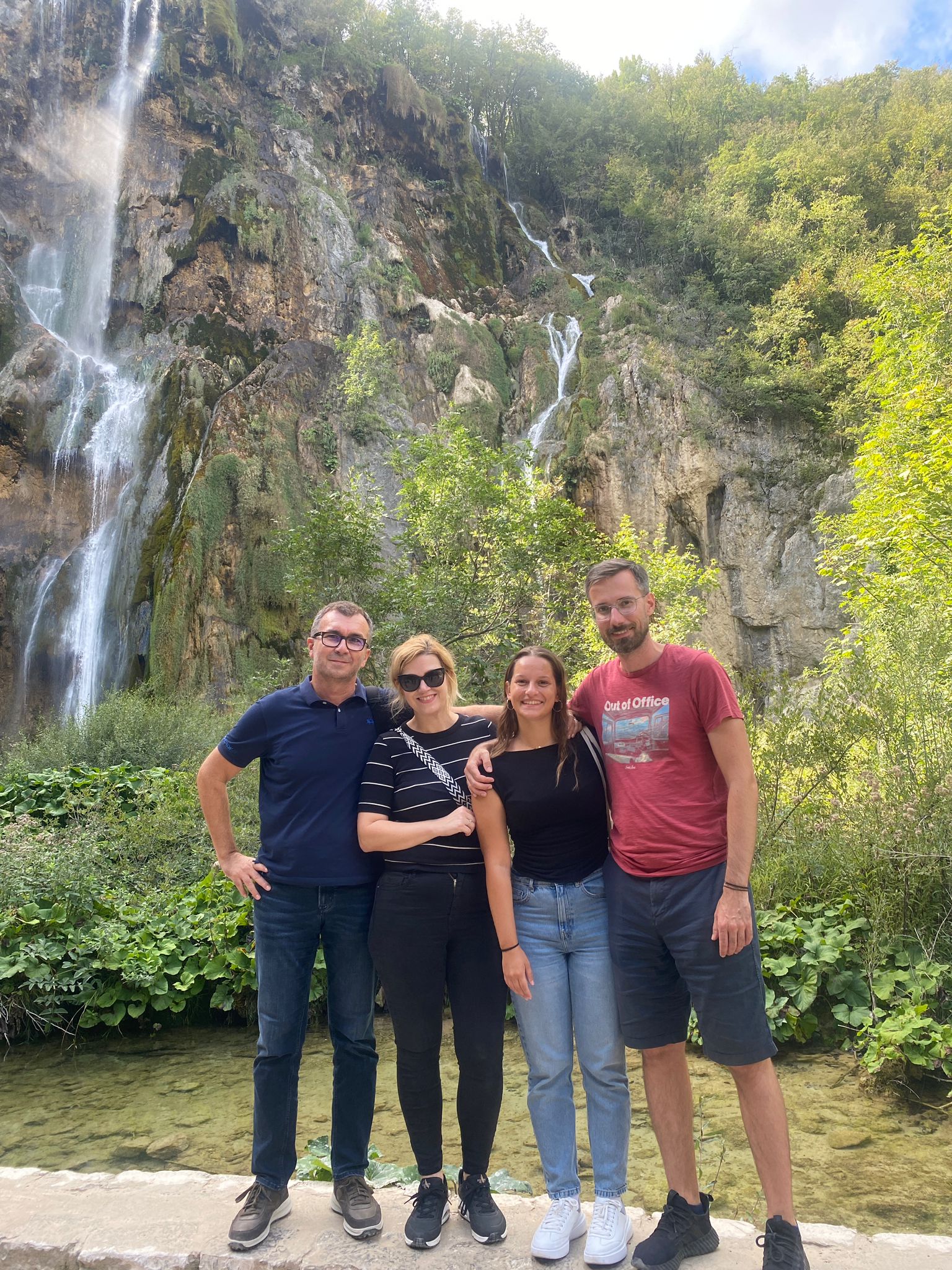
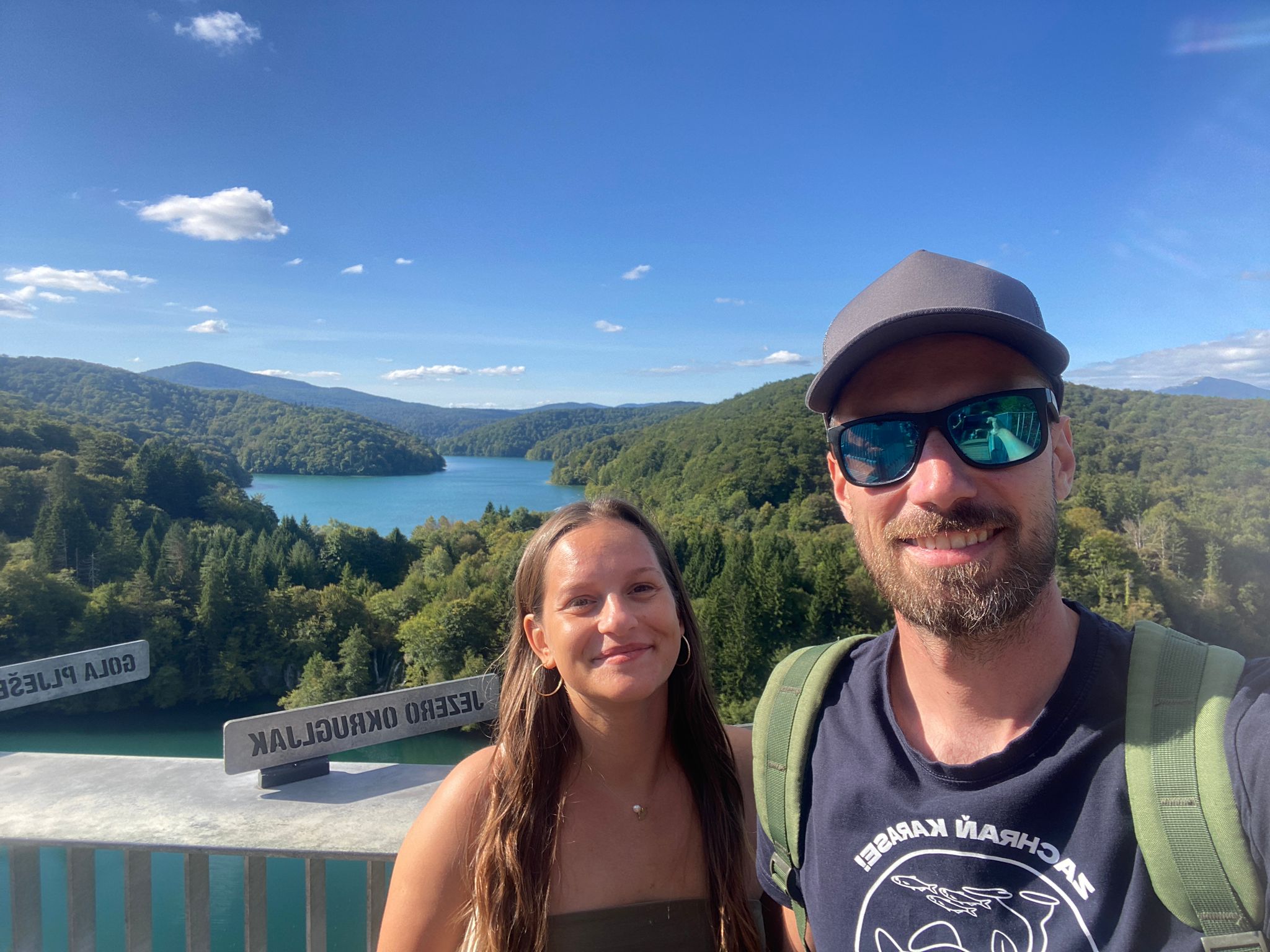
Conducting Interviews in Kopački Rit Nature Park
On July 21, 2025, project collaborators from the Institute for Tourism working on the PACT-VIRA project - Leona Matotek, Luka Valožić, and Filip Ložek - visited Kopački Rit Nature Park to conduct stakeholder interviews. The first interview involved Vlatko Rožac, Head Expert of the Public Institution Kopački Rit Nature Park, and Ružica Marušić, Head of the Department for Visitor Reception and Education. The second interview was conducted with Senata Majić, Director of the Bilje Tourist Board. Following the interviews, the project team conducted a field visit.
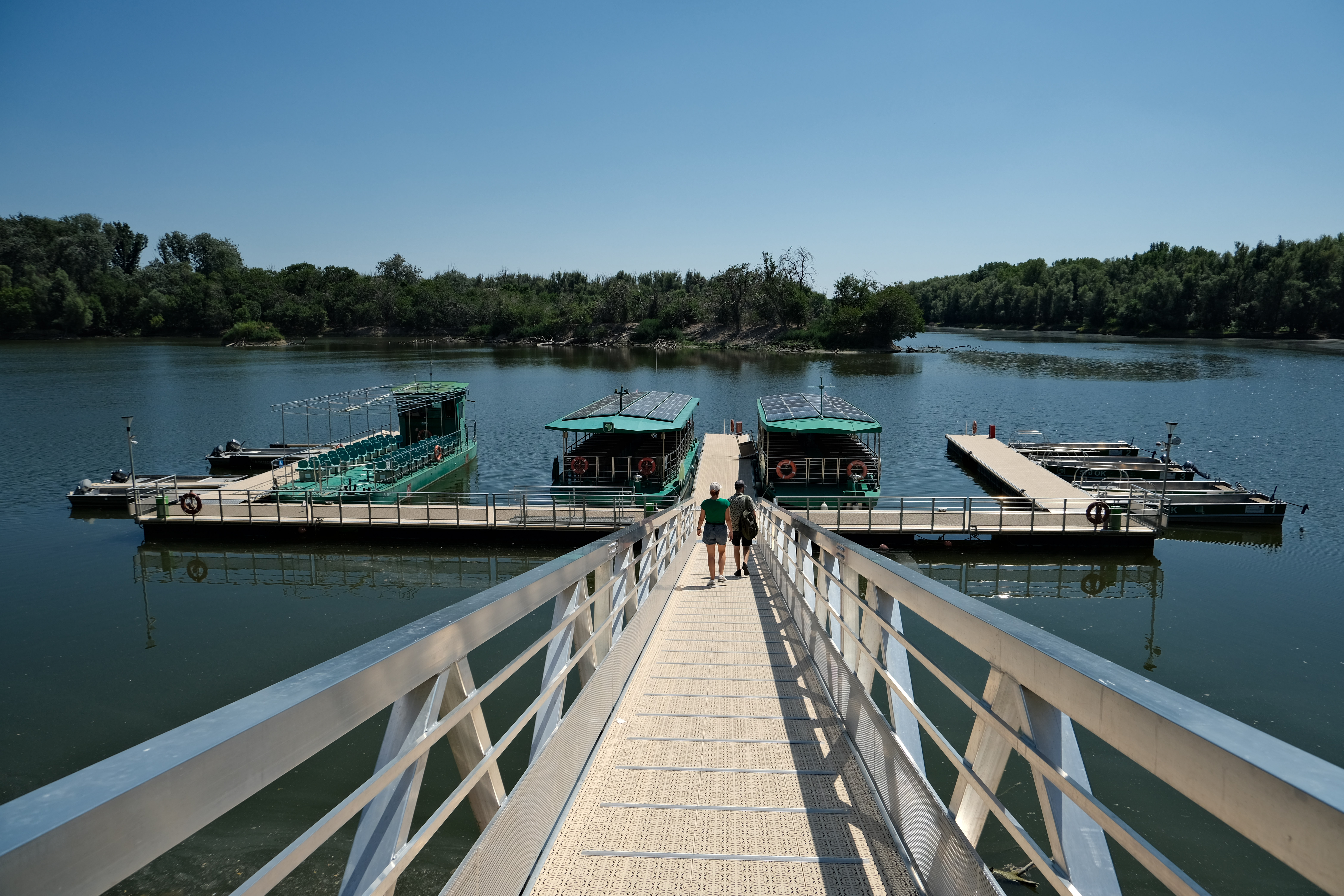
Climate Change and the Adaptation of Croatian Tourism: Focus of the PACT-VIRA Project
Dr. Izidora Marković Vukadin, project leader of PACT-VIRA – funded by the Croatian Science Foundation – briefly presented the project in an interview for Forbes Croatia.
Climate change is already significantly shaping Croatian tourism: extreme temperatures, wildfires, storms, and droughts are becoming increasingly common. A sector that contributes a large share of the country’s GDP and employs a substantial number of people is now facing the urgent need for transformation.
The PACT-VIRA project encompasses comprehensive climatological, hydrological, habitat, and tourism research to define indicators of tourism’s exposure to climate risks, identify ways to reduce vulnerability and enhance resilience, and develop concrete guidelines and tools for local communities and the tourism sector.
The interview placed special emphasis on nature-based solutions, such as green urban areas, permeable surfaces to reduce flooding, planting climate-resilient vegetation for shade and cooling, and circular water management.
As Dr. Izidora Marković Vukadin highlighted in the Forbes Croatia interview:
"The biggest losers will be those who rely solely on mass summer tourism without adaptation, while the key to the future lies in investing in sustainability, extending the season, and building resilience to climate risks."
PACT-VIRA is an example of how the scientific community can support data-driven tourism planning and management, ensuring concrete and sustainable measures to protect the environment, local communities, and the tourism offer itself.
Read the full interview HERE.
First Meeting with the Pilot Destination of the PACT-VIRA Project – Kopački Rit
The first meeting within the framework of the Croatian Science Foundation (HRZZ) project PACT-VIRA was held on May 13, 2025, at the Public Institution of the Kopački Rit Nature Park. The purpose of the meeting was to align the research plan and initiate research activities in one of the project’s pilot destinations.
The meeting was attended by representatives of the Kopački Rit Nature Park Public Institution: Ivo Bašić (Director), Ružica Marušić (Head of the Visitor Reception and Education Department), and Vesna Hrvojević (Head of the Secretariat Department), as well as representatives of the Institute for Tourism: Izidora Marković Vukadin, project leader, and project collaborators Damir Krešić, Mira Zovko, and Leona Matotek.
During the meeting, the PACT-VIRA project was presented, initial research activities were defined, and the next steps in the collaboration were agreed upon. The project focuses on developing innovative solutions to enhance the resilience and sustainability of tourism in protected natural areas, with Kopački Rit serving as one of the key sites for research and implementation of project activities.
The main objective of the PACT-VIRA project is to examine the impacts of climate change on tourism in ecologically valuable areas and to design adaptation strategies that will support the long-term sustainable management of tourism development. Addressing climate challenges is becoming increasingly important, particularly in environmentally sensitive areas such as national and nature parks. Through a multidisciplinary approach, the project aims to assess the vulnerability and resilience of these areas, develop relevant indicators, and propose effective adaptation measures.
In the upcoming period, more in-depth analyses and intensified collaboration with local stakeholders are planned, with the goal of ensuring effective and sustainable tourism development within Kopački Rit Nature Park.
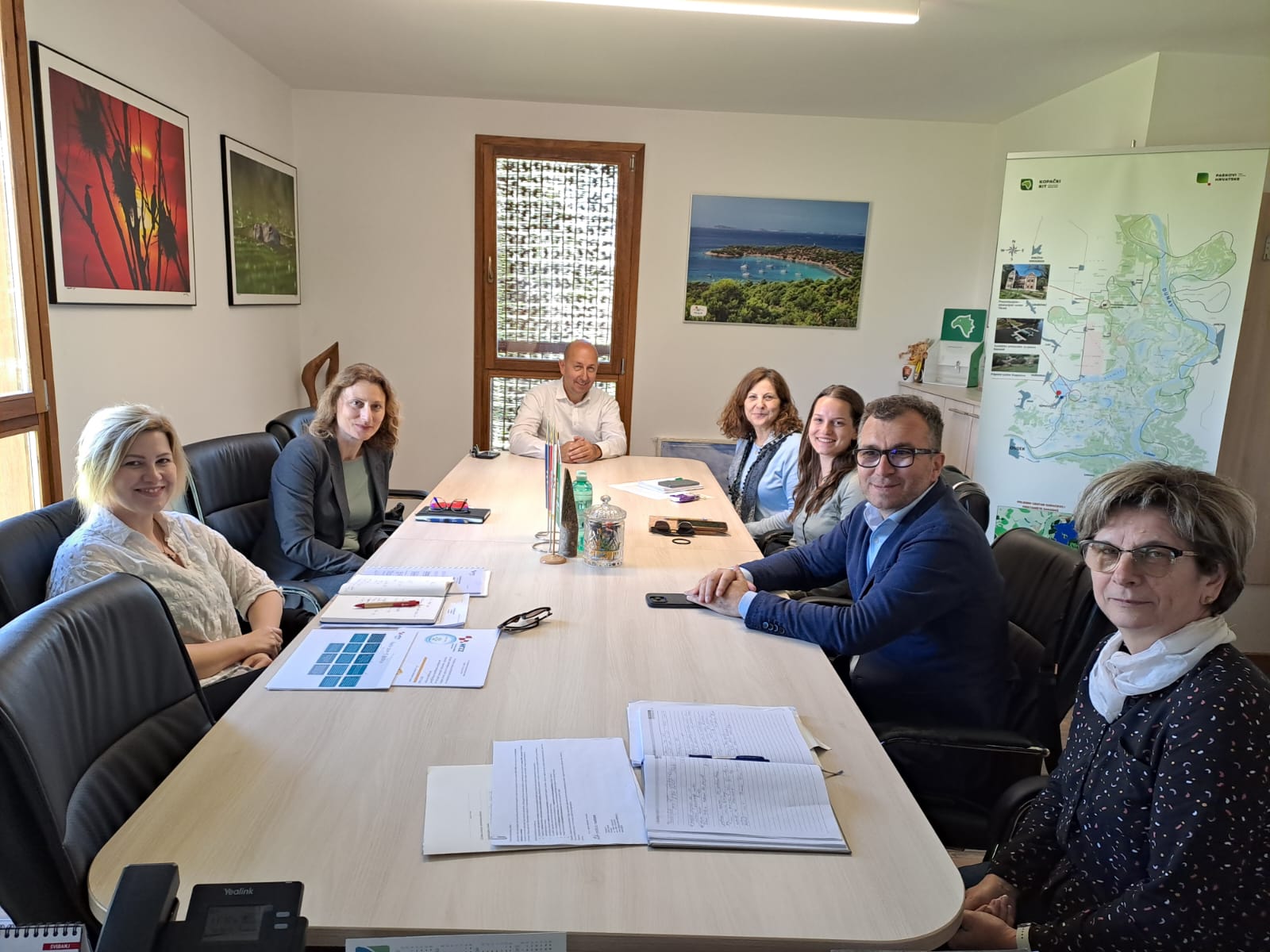
Dr. Izidora Marković Vukadin at EGU General Assembly 2025
The EGU General Assembly 2025, one of the largest global conferences in the field of geosciences, hosted a total of 20,984 registered participants. Of these, 18,646 attended the event in person in Vienna, while 2,338 participants joined online, presenting papers from 120 countries. A total of 18,934 presentations were made in 1,102 sessions, including two scientific papers stemming from projects by the Institute for Tourism.
As part of the conference, scientific paper resulting from the project of the Institute for Tourism was presented, with Dr. Izidora Marković Vukadin representing the Institute:
- Hydrogeological Reconstruction of Baranja Region (NE Croatia) as a Key Input for Sustainable Water Management
Authors: Kosta Urumović, Marco Pola, Marko Copić, Matko Patekar, Igor Karlović, Staša Borović, Josip Terzić, Branko Kordić, Izidora Marković Vukadin
This paper, presented as part of the PACT-VIRA project of the Croatian Science Foundation, addresses the hydrogeological reconstruction of the Baranja region for sustainable water management.
Link: EGU25-10074
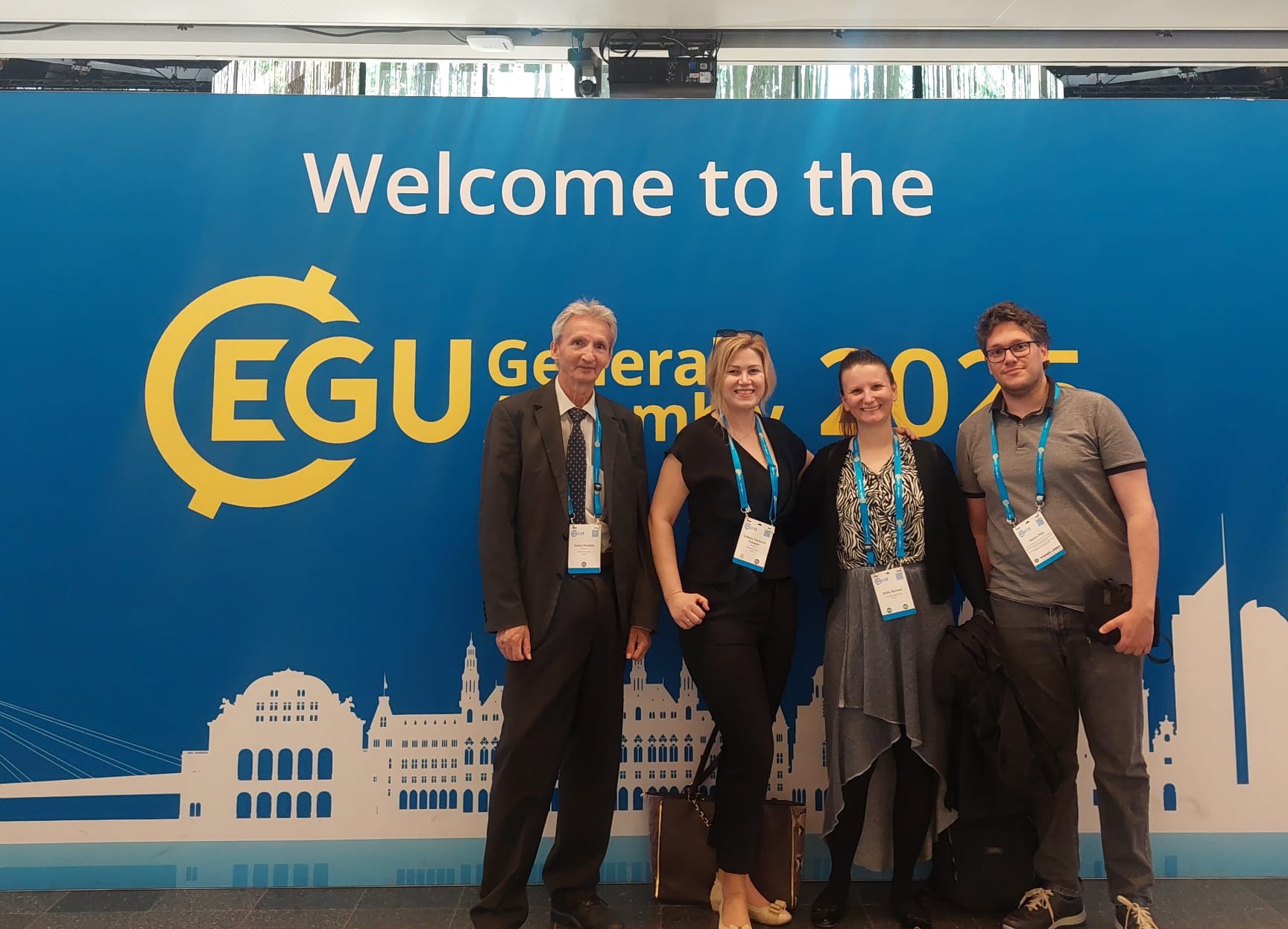
First Meeting with the Pilot Destination of the PACT-VIRA Project – Plitvice Lakes
On April 1, 2025, the first meeting for the HRZZ project PACT-VIRA was held at the Scientific Expert Center "Dr. Ivo Pevalek" in Plitvice Lakes National Park. The purpose of the meeting was to plan and initiate research activities in one of the project’s pilot destinations.
The meeting was attended by representatives of Plitvice Lakes National Park: Dr. Kazimir Miculinić (Head of the Protection, Maintenance, Conservation, Promotion, and Use Department of the National Park), Dr. Maja Vurnek (Expert Associate for Water Ecology), and Šime Knežević (Head of the Visitor Reception and Management Department). Representatives from the Institute for Tourism also participated: Dr. Izidora Marković Vukadin, Project Leader, and project collaborators Dr. Mira Zovko and Dr. Luka Valožić.
During the meeting, the PACT-VIRA project was introduced, initial research activities were outlined, and further steps for collaboration were agreed upon. The project focuses on developing innovative approaches to increase the resilience and sustainability of tourism in protected areas, with Plitvice Lakes serving as one of the key areas for research and project activity implementation.
The PACT-VIRA project aims to study the impacts of climate change on nature-based tourism in protected natural areas and to develop adaptation strategies that will ensure the long-term sustainability of tourism activities. Climate change represents an increasing challenge for nature-based tourism, especially in ecologically sensitive destinations such as national parks. The project will employ a multidisciplinary approach to assess the vulnerability and resilience of these areas, develop relevant indicators, and propose effective adaptation measures.
In the upcoming period, detailed analyses will be conducted, and collaboration with stakeholders in the destination will take place to ensure the efficient and sustainable development of tourism within the National Park.
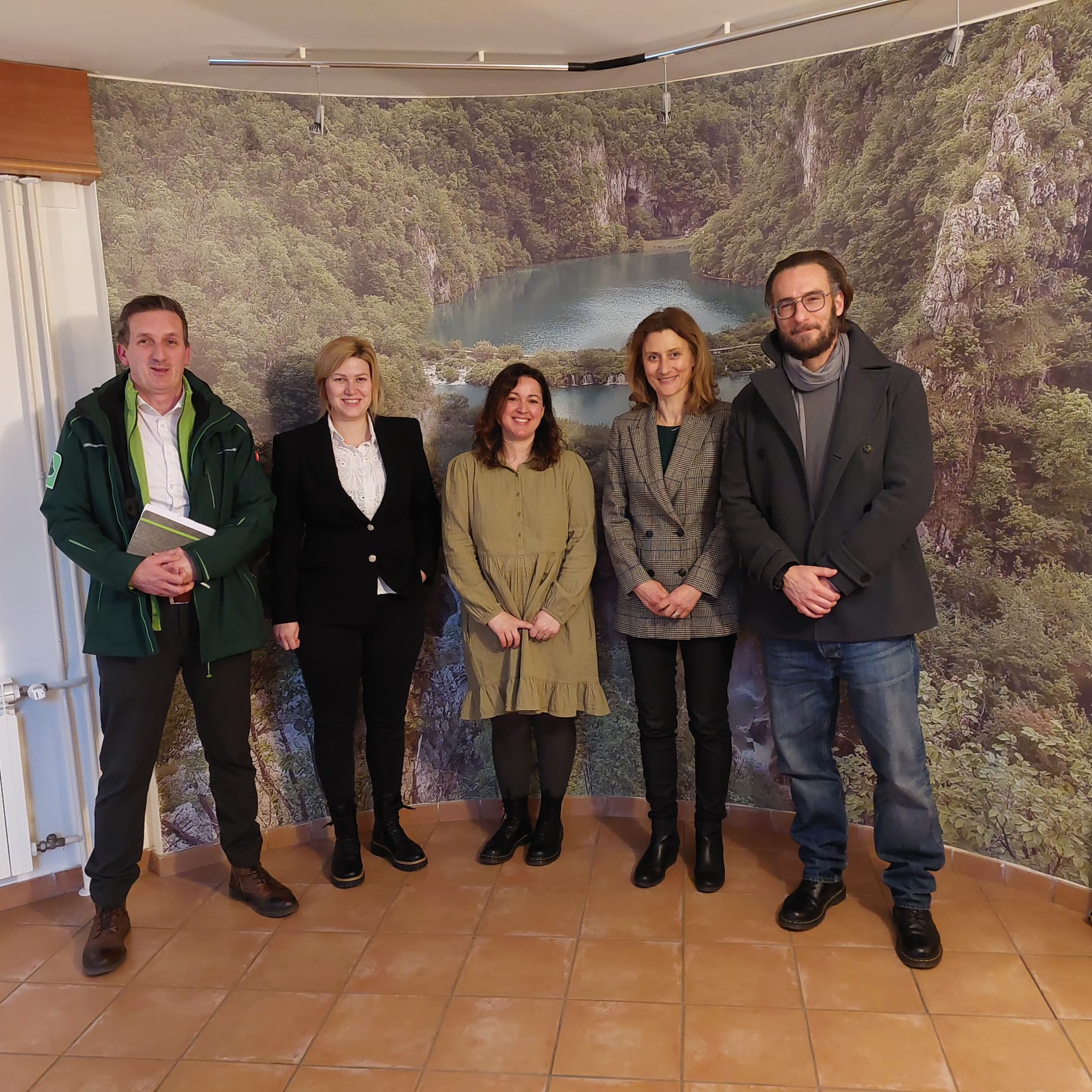
Dr. Izidora Marković Vukadin at the Conference "Climate Change, Economy, and Society"
On March 21, 2025, the conference Climate Change, Economy, and Society was held at the Institute of Economics, Zagreb. The presentations and roundtable discussions provided an interdisciplinary perspective on climate change in Croatia, encouraged an analysis of its impact on various sectors of the economy and society, and initiated a discussion on necessary strategies, policies, and measures.
Our Dr. Izidora Marković Vukadin participated in the conference, where she spoke about the connection between climate change and tourism, the challenges facing the sector, and possible solutions. On this occasion, the HRZZ project PACT-VIRA was also briefly presented.
The conference program and topics of the presentations are available at the following link.
Kick-Off Meeting Held for the PACT-VIRA Project
On December 18th, the first meeting of the HRZZ project “Assessing the Impact of Climate Change on Nature-Based Tourism: Development of Vulnerability and Resilience Indices for Protected Areas to Manage Adaptation Strategies” (PACT-VIRA) was held. The project is led by Dr. Izidora Marković Vukadin from the Institute for Tourism. The meeting brought together approximately 20 collaborators from six institutions, including the Institute for Tourism, the Croatian Meteorological and Hydrological Service (DHMZ), the Croatian Geological Survey, the Faculty of Economics at the University of Split, the Ministry of Environmental Protection and Green Transition (MZOZT), and the Faculty of Science (PMF).
Project Objectives:
- O1. Conduct a comprehensive review of literature and practices related to the impacts of climate change on tourism, protected areas, vulnerability and resilience of protected areas, and the evaluation and indicators of vulnerability and resilience.
- O2. Assess the current state of tourism in protected natural areas to identify key climate risks and associated threats affecting the sustainability of tourism activities, considering factors such as extreme weather events, potential natural hazards, and habitat loss.
- O3. Carry out a thorough vulnerability assessment of protected areas to various climate change risks and associated stressors using spatial analysis techniques, surveys of local communities and visitors, analysis of visitor usage patterns, climate data analysis, and hydrological analysis to evaluate factors such as habitat sensitivity and socio-economic vulnerability.
- O4. Based on various climate risks and associated stressors, propose a set of vulnerability indicators using spatial analysis techniques, local community and visitor surveys, analysis of visitor spatial movement, climate data analysis, and hydrological analysis.
- O5. Identify and quantify resilience indicators within environmental, social, and economic dimensions to evaluate the capacity of protected areas to resist and recover from the impacts of climate change.
- O6. Develop a composite Vulnerability Index and Resilience Index tailored to diverse protected areas in Croatia, integrating the findings of vulnerability and resilience assessments to provide a holistic understanding of the challenges and opportunities posed by climate change.
- O7. Translate the results of the indices into actionable recommendations for protected area managers, policymakers, and tourism stakeholders to enhance adaptive capacity and promote sustainable tourism practices in the face of climate change.
The meeting served as an opportunity for participants to get acquainted and to present the work plan and planned activities for the project's first year of implementation. We look forward to future collaboration and the successful realization of the project!